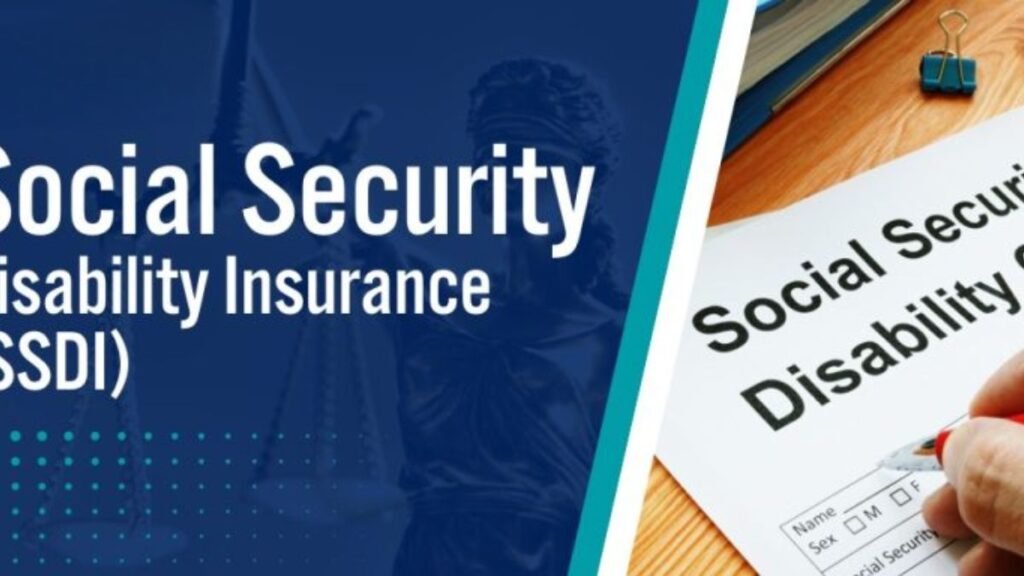The social security disability insurance (SSDI) is one of the key social assistance schemes in the U.S., and its target population is the citizens who fail to work because of some physical or mental disability. This plan provides financial security, but at the same time many people do not know how the monthly income received from SSDI affects other public assistance plans they may receive.
There is often a misconception that after taking SSDI, a person is no longer eligible for plans like SNAP (food stamps), Medicaid or Section 8, but the reality is somewhat different. In this article, we will understand in detail how SSDI affects other assistance plans, which plans can be available with it, and what things need to be kept in mind.
Relation between SSDI and other government assistance
First of all, it is important to understand that SSDI is not based on your financial need, but on your work history and tax contributions. That is, whether you will get SSDI or not is determined by how many years you have worked in the past and how much Social Security tax you have paid.
This means that even if a person receiving SSDI is financially poor, he or she is not eligible for all assistance plans – especially those that are only for low-income people, such as Supplemental Security Income (SSI). SSI is based solely on the assessment of your income and assets, while SSDI is different.
Does taking SSDI affect Medicaid or Medicare?
This is a common question and the answer is – it depends on state rules. In some states, if your income goes above the eligibility limit for Medicaid, you may stop getting this plan. But after 24 months of taking SSDI, you automatically become eligible for Medicare, which provides a permanent and comprehensive health coverage.
So even if you lose Medicaid, Medicare can still be a great option for you. Medicare also offers a wide range of services such as hospital insurance, medical insurance, and prescription drug coverage.
SSI and SNAP (food stamps) – can they be combined?
Yes, people receiving SSDI can also apply for SNAP. But SSDI is counted as income. However, there are some special provisions for individuals with disabilities, such as –
- Medical expenses can be deducted from income, which can increase your eligibility.
- The eligible persons with disabilities have various requirements.
- One is to give proper documentation and information in the application.
Thus, it is possible to be considered under the SNAP program even though you earn a little bit more compared to a typical SSDI recipient because you may use a reasonable exemption and have all of the necessary documents.
SSI HUD Section 8 (Housing Subsidy)
Section 8 program provides rent-based assistance. SSDI is counted as household income, and this determines how much subsidy you will receive.
That is to say that:
Collecting SSDI does not disqualify you to get section 8.
However, the amount that you may receive as a subsidy can be changed based on your monthly SSDI, the number in your household, and other income.
Some states even give SSDI recipients housing preference, especially if they live alone or need additional assistance.
SSDi and Other Assistance Plans
You can apply for several other plans in addition to SSDI. Some of the main ones are:
- Medicare (automatically applies after 24 months) This includes the cost of hospital, doctors and prescriptions medicines.
- Low Income Home Energy Assistance Program (LIHEAP) This plan covers the assistance of electric bills, heating, and cooling.
- Local State Benefits
Some states also provide SSDI recipients with discounted bus fares, free transit, or additional cash subsidies.
- EBT Cards and Other Food Programs
– In addition to SNAP, some religious organizations and local agencies offer additional food help. - Social Services & Counseling
Mental health, rehabilitation and social work services are some of the services most SSDI beneficiaries are exposed to.
All this implies that SSDI does not deprive you of receiving other assistance programs, but it may, in some cases, facilitate the receipt of it.

What do you do to know what programs you qualify in? (obtain)
You can find out your eligibility through the following:
Benefits.gov website:
Here you can fill out a questionnaire to find out which programs you qualify for.
My Social Security portal:
Here you can download your SSDI payment history, letters, and other services.
Local Social Security office or public assistance center:
These centers provide in-person assistance and explain the process to you.
Conclusion
SSDI is not just a monthly payment, but it can open the door to many other assistance plans for you. It is true that SSDI forms part of your income and counts towards some plans, but with the right documents, exemptions, and information, you can still be eligible for other plans. So assuming that you cannot get any other government assistance after getting SSDI is a misconception. All you need to do is properly evaluate your situation, underst
FAQs
1. What is SSDI?
A. SSDI (Social Security Disability Insurance) is a federal program that provides monthly benefits to people with disabilities who have worked and paid Social Security taxes.
2. Can I receive SSDI and other government benefits at the same time?
A. Yes, you may qualify for other benefits like SNAP (food stamps), Medicaid, or housing assistance while receiving SSDI. However, eligibility rules vary.
3. Does SSDI affect eligibility for Medicaid or Medicare?
A. If you’re on SSDI, you’ll automatically become eligible for Medicare after 24 months. You may also qualify for Medicaid, especially if your income and assets are limited.
4. Can I get food stamps (SNAP) while on SSDI?
A. Yes, but your SSDI income will be considered when determining eligibility. You must meet the income and household size requirements.
5. Will SSDI reduce my Supplemental Security Income (SSI)?
A. Yes. SSDI counts as income, and receiving it can reduce or eliminate your eligibility for SSI, which is needs-based.







